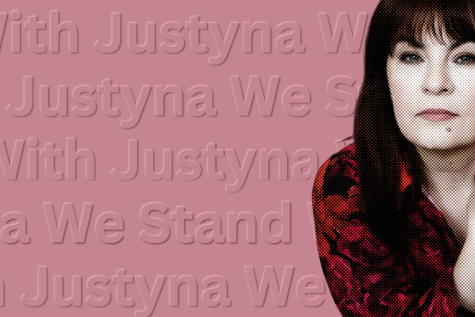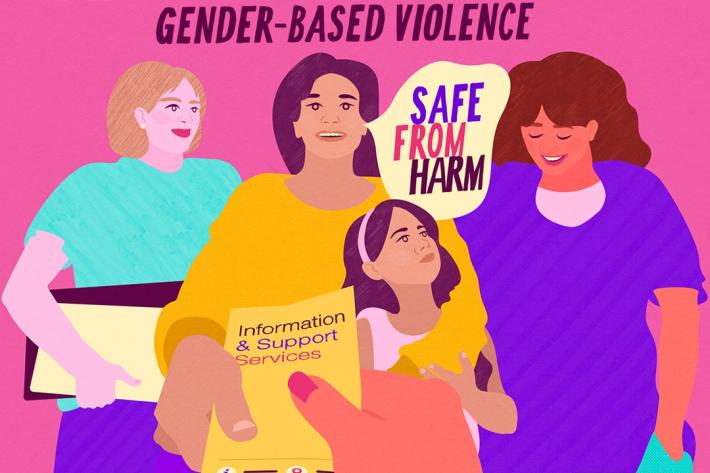Latest press releases
A selection of stories from across the Federation

Poland
Poland: Justyna Wydrzyńska’s Trial to Continue – A Shameful Blow to the Fight for Reproductive Rights
Today, instead of delivering justice, the court prolonged the legal persecution of Justyna Wydrzyńska by ordering a retrial.
For media inquiries


| 28 June 2023
European Parliament Committees support and strengthen EU bill on gender-based violence
IPPF EN welcomes today’s vote on the draft EU Directive to combat Violence Against Women and Domestic Violence by the European Parliament's Committees for Women's Rights and Gender Equality and Justice. MEPs overwhelmingly backed the Commission’s ambitious original proposal by 71 votes to 5 with 7 abstentions. Their move ensures this vital law will go even further in protecting the rights and safety of women, girls and people affected to live free from gender-based violence. Crucially, MEPs have supported the European Commission's proposal to ensure EU-wide criminalisation of rape with a definition based on the absence of consent.* "This is a strong signal that the Parliament, as a representative of EU citizens, wants a consent-based definition of rape to be the standard throughout Europe. This is in line with the language of the Istanbul Convention, which is now 15 years old, but was only recently ratified by the EU after years of stalemate," said Camille Butin for IPPF EN. "Now we strongly urge the EU institutions to adopt ambitious and robust final wording that truly centres the objective of the Directive, which is to help combat violence against women and uphold gender equality in Europe. In particular, we call on Member States to find the political will to take effective action against rape, after they failed to back a consent-based definition in their recent preliminary position," added Butin. IPPF EN welcomes MEPs' backing today of the following vital amendments to the original draft Directive: Addition of criminalisation of sexual assault, genital mutilation of intersex people and forced sterilisation. MEPs also backed the criminalisation of female genital mutilation and various forms of online violence. Inclusion of full range of sexual and reproductive healthcare, including abortion care, in support services for victims of sexual violence. Robust wording on including comprehensive sexuality and relationship education in gender-based violence prevention measures. This requires EU countries to increase awareness of the concept of consent, promote gender equality and challenge harmful gender stereotypes, particularly working with men and boys. Clear focus on intersectionality in wording on discrimination faced by victims of gender-based violence, including LGBTIQ people. IPPF EN regrets MEPs’ decision to replace the wording ‘women sex workers’ with ‘women in prostitution’ as sex workers themselves perceive this term as demeaning and linked with criminality. IPPF EN stands with sex workers, and rejects stigmatisation that has devastating consequences for them. The next step in this legislative process will be for the European Parliament and Council to negotiate on the basis of their preliminary positions in order to reach agreement on the final text of the Directive. Media contact : Camille Butin, Advocacy Advisor, [email protected] --- *14 EU Member States still have laws with outdated definitions of rape based on use of force or the threat of force by the perpetrator, as opposed to absence of consent by the victim. These laws fail to meet international human rights standards, including the 2008 Istanbul Convention, to which the EU recently acceded. They ignore the realities that many survivors face in the context of rape, overlook the fact that a person can rape without using physical force or violence, and enable significant impunity for perpetrators.

| 09 June 2023
IPPF EN condemns Member States' failure to back EU action against rape
Today the EU Council agreed a preliminary position on the European Commission’s bold proposal for an EU Directive to Combat Violence Against Women and Domestic Violence. IPPF EN deeply regrets that the Council’s General Approach reveals a decision by Member States to cut from the draft law a requirement for all EU countries to criminalise rape using a strong and harmonised definition based on the absence of consent by the victim*. The progressive definition in the European Commission’s proposal was fully aligned with the Istanbul Convention, to which the EU recently acceded after years of stalling by national governments. "Women, girls and minorities across the EU face widespread sexual violence, and this goes largely unpunished. It is inexcusable that the Council has today failed to find the political will to take effective action against rape. Member States are jeopardising a unique opportunity for the EU to adopt a law that guarantees equal rights for all women and girls to access justice and live safe from sexual violence," says Camille Butin for IPPF EN. Member States and the European Parliament will need to reach an agreement on the final text of the Directive in the coming months. MEPs are expected to support the European Commission’s proposal to harmonise the criminalisation of rape.

















